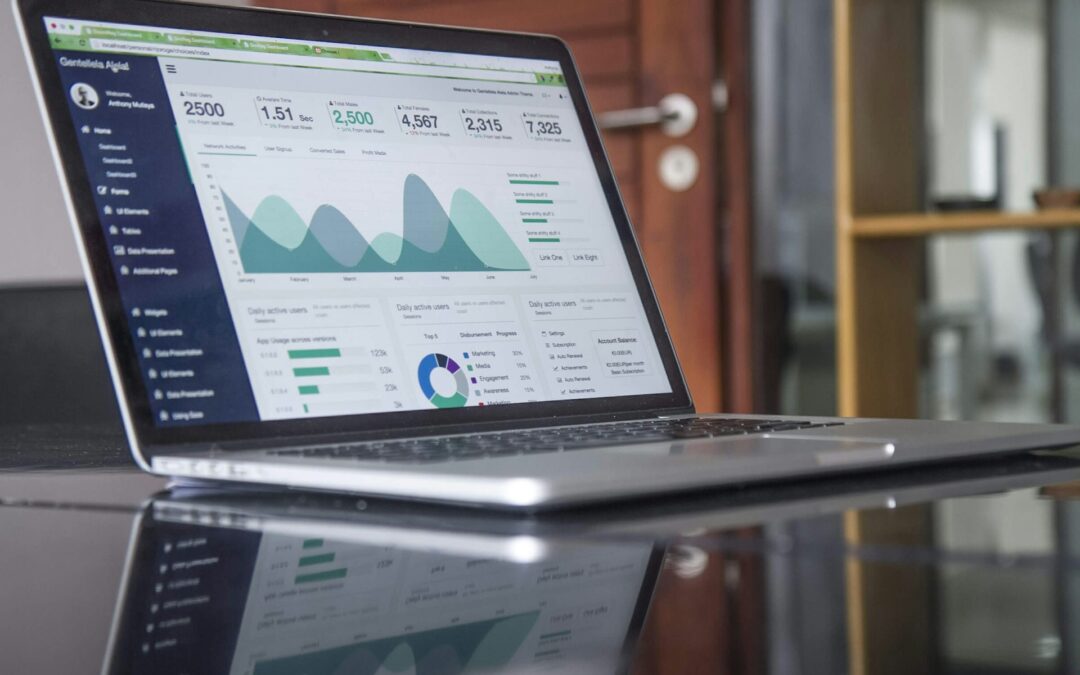In today’s hyper-competitive marketplace, small businesses face the challenge of standing out amidst the noise while operating within limited resources. The key to success lies in making informed decisions driven by data. This is where marketing analytics comes into play, empowering small businesses to understand their customers, optimize their marketing efforts, and achieve sustainable growth. Let’s delve into strategies that small businesses can employ to unlock the power of marketing analytics.
7 Marketing Analytic Tools For Small Businesses
- Define Clear Objectives: Before diving into the world of marketing analytics, small businesses need to define clear objectives. Whether it’s increasing brand awareness, generating leads, or driving sales, having well-defined goals provides a roadmap for leveraging marketing analytics effectively. By aligning analytics efforts with business objectives, small businesses can focus their resources on initiatives that drive tangible results.
- Utilize Web Analytics Tools: One of the most accessible and powerful sources of marketing data for small businesses is web analytics. Platforms like Google Analytics offer a wealth of insights into website traffic, user behavior, and conversion rates. By tracking key metrics such as bounce rate, session duration, and goal completions, small businesses can gain valuable insights into the effectiveness of their online marketing efforts and identify areas for improvement.
- Implement Customer Relationship Management (CRM) Systems: CRM systems are invaluable tools for small businesses to manage customer interactions and track sales opportunities. By centralizing customer data, small businesses can gain a holistic view of their customers’ preferences, purchase history, and engagement across various touchpoints. Leveraging CRM data alongside marketing analytics allows businesses to segment customers, personalize communications, and nurture leads more effectively.
- Embrace Social Media Analytics: Social media platforms provide a treasure trove of data for small businesses to analyze and optimize their marketing strategies. Tools like Facebook Insights, Twitter Analytics, and Instagram Insights offer insights into audience demographics, engagement metrics, and content performance. By analyzing social media analytics, small businesses can identify trends, refine their content strategy, and engage with their audience more authentically.
- Implement Marketing Automation Platforms: Marketing automation platforms streamline repetitive tasks and enable small businesses to deliver personalized experiences at scale. Platforms like HubSpot, Mailchimp, and ActiveCampaign offer features such as email automation, lead scoring, and campaign tracking. By automating marketing workflows and tracking customer interactions, small businesses can optimize their marketing efforts, nurture leads, and drive conversions more efficiently.
- Invest in Data Visualization Tools: Data visualization tools transform raw data into visually compelling insights that are easy to understand and act upon. Platforms like Tableau, Power BI, and Google Data Studio allow small businesses to create interactive dashboards and reports to track key metrics and monitor performance in real-time. By visualizing marketing data, small businesses can identify patterns, trends, and opportunities to optimize their marketing strategies effectively.
- Continuous Learning and Optimization: The field of marketing analytics is constantly evolving, and small businesses must stay abreast of the latest trends and technologies. Investing in ongoing education and training for marketing analytics ensures that small businesses can leverage new tools and techniques to stay ahead of the competition. By continuously analyzing data, testing hypotheses, and iterating on strategies, small businesses can optimize their marketing efforts and drive sustainable growth over time.
In conclusion, marketing analytics holds the key to unlocking growth opportunities for small businesses in today’s competitive landscape. By defining clear objectives, leveraging data from web analytics, CRM systems, social media platforms, and marketing automation tools, small businesses can gain valuable insights into their customers’ behavior and preferences. By investing in data visualization and continuous learning, small businesses can optimize their marketing strategies, drive meaningful engagement, and achieve long-term success.


Recent Comments